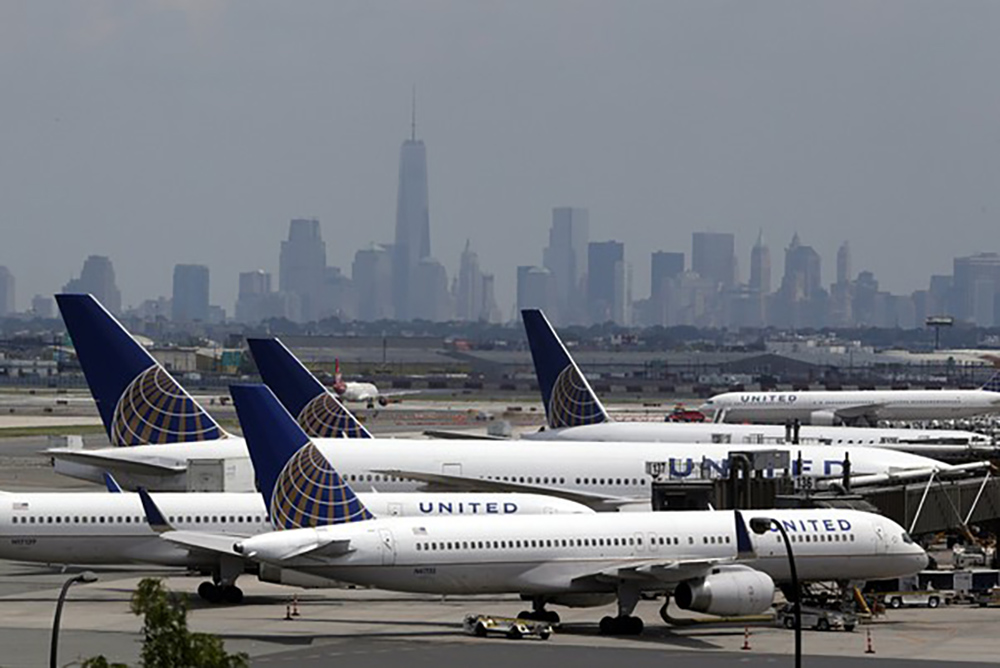|
Getting your Trinity Audio player ready...
|
By Elaine Mallon
Storms across the country have canceled 89 flights the day before the Fourth of July holiday.
At least 15 states are facing severe weather conditions ahead of Independence Day. Hail, wind, and possible tornado damage have wreaked havoc on the East Coast and Mississippi River regions, according to hundreds of reports.
More than 900 flights within or entering the United States were canceled over the weekend, according to FlightAware.com. Between Saturday and Sunday, a total of 905 flights in and out of the United States were canceled and 15,567 flights were delayed, the Daily Mail reported. Thousands of passengers are stranded, some reportedly sleeping in the airport and waiting hours in line to rebook flights.
One passenger was stranded in the Newark airport for five days after United Airlines canceled his flight.
Meanwhile, the CEO of United, Scott Kirby, chartered a private plane on Wednesday from Teterboro Airport in New Jersey to Denver, Colorado. That day, United Airlines canceled 751 flights. He has since apologized, claiming it was the “wrong decision” and “insensitive” to his customers.
In a letter, Chief Customer Officer Linda Jojo offered United Airline customers 30,000 flight miles to make amends.
“I know this week was hard,” Jojo wrote. “Really bad weather, air traffic control issues and some of our own operational challenges led to a rough experience for you and many of our customers.”
Last month, United Airlines canceled 19 percent of its flights. The company says the cancellations were due to thunderstorms and equipment failures at a U.S. Federal Aviation Administration facility and even blasted Transportation Secretary Pete Buttigieg for his handling of the equipment failures.
However, Buttigieg said United was struggling more than other airlines.
“I want to be very clear, air traffic control issues are not the number one issue causing cancellations and delays,” Buttigieg said. “They’re not even the number two issue. All the data, including industry’s own data, is very clear on that.”
It is not just airline passengers at risk. People traveling on the I-95 corridor from New England to the mid Atlantic will also be met with brutal storms.
Parts of the Plains and the Midwest have been labeled a category two on a thunderstorm risk scale that goes up to five by the Storm Prediction Center. The area south of New Jersey through South Carolina was also labeled a level two.
Severe storms are expected to last through the holiday on the East Coast.





